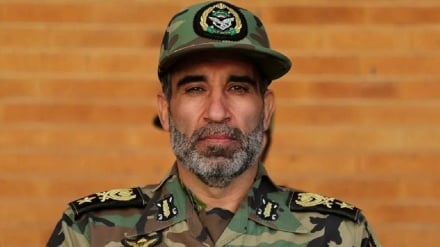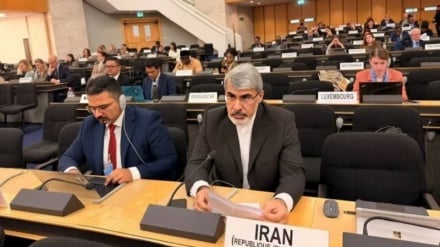Nothing being done by Pakistan to halt Hazara genocide
It is almost week since sectarian terrorism left a trail of death and destruction at the fruit and vegetable of Hazratganj near Quetta, the bereaved families are yet to see justice done by the government in Islamabad.
Stay with us for a report in this regard by columnist Imad Zafar for Asia Times, titled: “Nothing being done by Pakistan to halt Hazara genocide”.
Pakistan’s Hazara community, which mostly consists of Shi’a Muslims and most of whom reside in the province of Balochistan, again suffered a huge blow when on Friday, April 12 they were targeted again by terrorists. A bomb exploded near Quetta, the capital of Balochistan, in a vegetable market, claiming the lives of 22 people and injuring over a hundred men, women, and children.
Both the Lashkar-e Jhangvi (LeJ) and the Tahreek-e Taliban-e Pakistan (TTP) accepted responsibility for this terrorist attack, which was exclusively carried out to kill members of the Hazara community.
This is not the first time that the Hazara community has been targeted, as in the past five years, at least 509 Hazaras have been slaughtered.
For this community, there is no relief. They live like third-class citizens, and they even are deemed a threat to the other people living or working beside them, because terrorists and banned outfits like Lashkar-e-Jhangvi (LeJ) can also unleash their wrath upon people who accommodate the Hazara people.
The Hazara community has staged a protest against this most recent attack. However, as usual, the majority of the Pakistani media have not given adequate coverage to the protest, nor of the bomb attack itself.
The protesters want Chief of Army Staff Qamar Javed Bajwa to come and guarantee them that their genocide will be stopped – but without the least response.
For the rest of the country, it is business as usual, as the target was a minority, and that too from the Shi’a school of Islam. The government of Pakistan has not shown any solidarity with the Hazara people, who have been subject to genocide and marginalization for the past two decades.
The inept and powerless provincial government of Balochistan has failed miserably to give them protection, while the central government has always been handicapped in this matter, for Balochistan is a no-go area for civil government as the military bureaucracy runs the affairs of the province.
Balochistan, being a proxy battlefield between Pakistan and India, has been in a condition of war for many decades, and the state has nurtured extremist outfits like LeJ in the province to counter Indian and Afghan interference and to suppress separatist movements. But organizations like LeJ have fanatic beliefs, and for them killing fellow Muslims of other schools of Islamic jurisprudence is a deed that will qualify them for paradise after death – a total deviation from the teachings of the holy Qur’an.
So the state perhaps considers the Hazara community collateral damage in the proxy wars against India and Afghanistan, and unfortunately there is no end in sight to the miseries of the Hazaras.
Last year Bajwa visited Balochistan and assured the Hazaras that they would be protected and the extremist outfits would be eliminated. But despite Bajwa’s assurances, the spread of hate against this community continues, and the killings have not stopped. When even an army chief cannot solve the problems of a particular community, the question arises of what should be done now.
The relationship between a state and its citizens is based on a social agreement that the state will ensure the protection of its citizens and their right to practice their beliefs and will provide equal economic opportunities to all. For the Hazara community, this still is a dream, as they are economically deprived – no one likes to hire them as the banned outfits threaten those who give jobs or do business with them. Every now and then such people have been brutally killed by these extremists, and they have to live in specific places to avoid the wrath of these banned outfits.
Life for the Hazara community means only to live another day. There is not a single house in this community that has not buried loved ones, and yet the courts, the government and the military establishment have nothing to offer them other than promises, which are never fulfilled. The rest of the population cares little about this community as it along with mainstream media is obsessed with elite power politics.
Despite the ongoing protest, neither Prime Minister Imran Khan nor any senior member of his party has visited Balochistan to show solidarity with the Hazara community. All the government and the establishment had to offer were a few statements condemning the killings of innocent people, while for the rest of the population it was only another attack by terrorists.
The government and the masses in Pakistan who were so impressed with New Zealand Prime Minister Jacinda Ardern for her exemplary show of courage, defiance and solidarity with Muslims after the brutal attacks in Christchurch in March are just happy to sit silently and not do anything practical on the ground.
It is a sad state of affairs as the whole nation is obsessed with the deteriorating human-rights conditions in Kashmir, Palestine and Myanmar but in their own country the genocide of the Hazara community continues, and other religious minorities have also been marginalized. This double standard in the collective wisdom of the nation has paved the way for extremists to assert their authority on the collective intellect of society, and as a result it is acceptable that minorities like the Hazaras are marginalized, and killing them is not a big deal.
Balochistan is a province that is given very little coverage and not discussed in or by the media because the powers that be do not like journalists and intellectuals talking about the deteriorating human-rights conditions in the province. Other than that, talking about the genocide of the Hazara community can also land one in trouble, as extremist outfits like LeJ are very powerful and one can get shot or go missing by highlighting the plight of the Hazara community or the marginalized Balochs.
To be very honest, even in their state of misery, the Hazara community is still relatively fortunate that there are voices raised for them by a few journalists, while for the rest of the Baloch people, where almost five out of 10 families are searching for loved ones who have been missing for years, no journalists dare to raise their voices on their behalf, because doing so would put themselves at risk as well.
It would not be difficult to eliminate extremist outfits if the state were serious about doing so, as no one has more might than the state.
Tehreek-e-Labbaik Pakistan (TLP), the extremist outfit that incited violence against the Christian woman Asia Bibi who was finally acquitted of blasphemy by the courts, was eliminated in a few hours, and its top leadership is still behind bars. If TLP can be eliminated so quickly, then banned outfits like LeJ can also be removed, but only if those in real power stop assuming that these organizations are strategic assets.
The state has a choice: Either it wants to save peaceful communities like the Hazaras or it is not ready to eliminate the banned extremist outfits.
AS/SS


